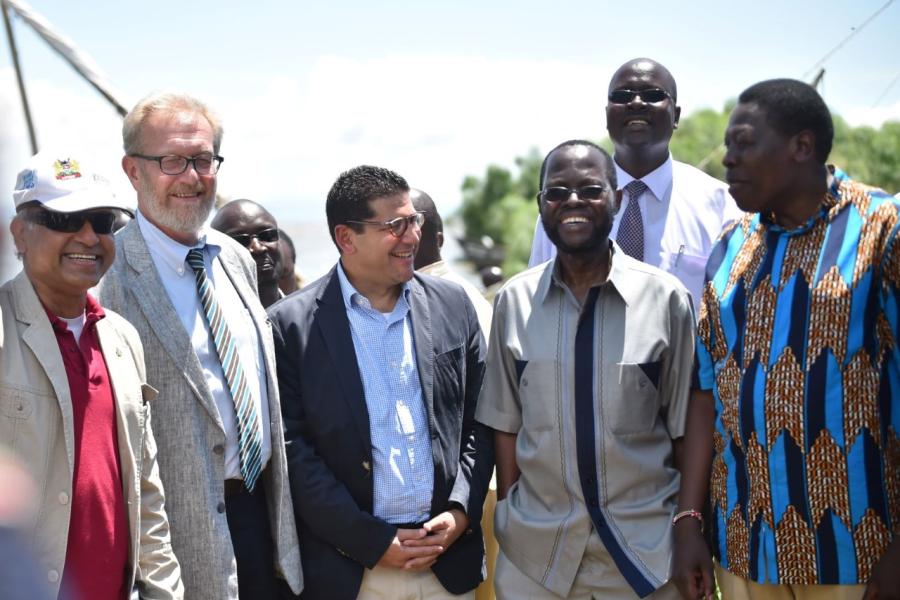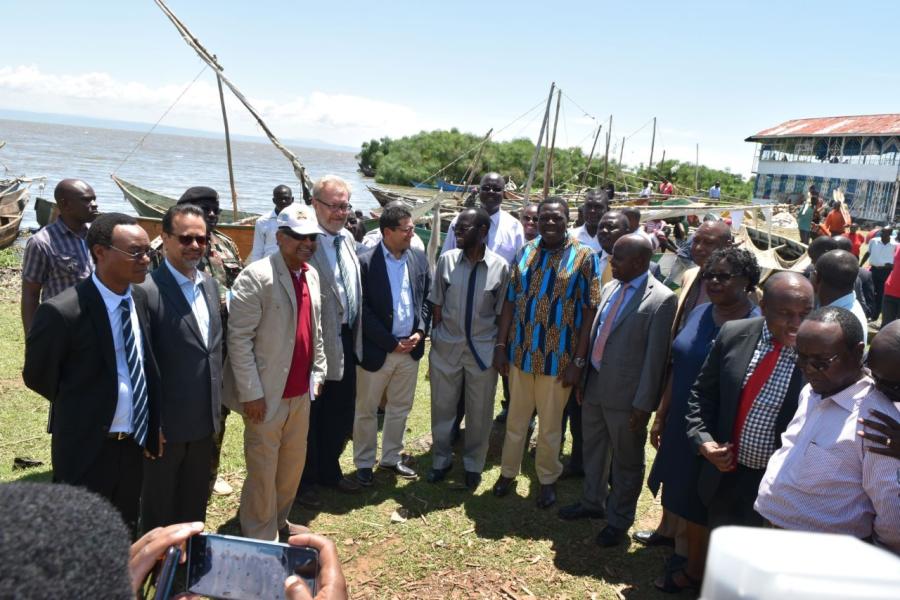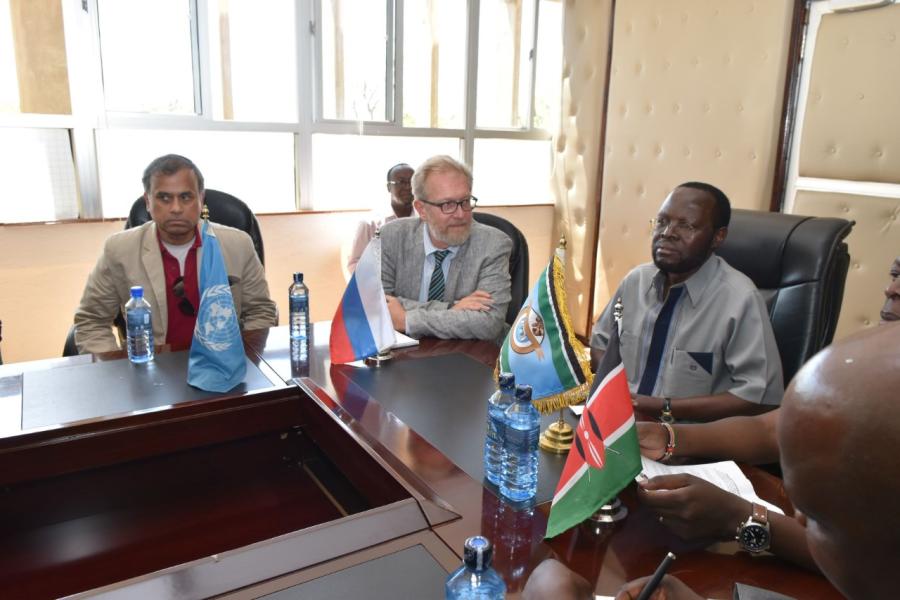With an injection of USD 7 million, the days of Water Hyacinth in Lake Victoria Basin are numbered
28 October 2019
- An important partnership between Russia, the United Nations, and the government of Kisumu County, Kenya will help combat pollution in the world's second-largest lake and could help transform the Lake Basin region
Kisumu - A major partnership between The Embassy of Russia, the United Nations in Kenya and the County Government of Kisumu will see the over 14,000 hectares of the Water Hyacinth in Lake Victoria cleared following an injection of USD 7 million by the Russian government.
The partnership programme dubbed: Sustainable Management and Utilization of Water Hyacinth in Lake Victoria Basin will be launched today in Kisumu. This programme will be implemented in the next 3 years.

A variety of activities around the lake have led to large-scale pollution of the world’s second-largest lake, with one of the effects being the proliferation of the water hyacinth (Eichhorniacrassipes) in the bays, especially within Kenya. The fast-spreading hyacinth is currently estimated to affect over 14,000 hectares of the lake, and though has severe economic consequences.
The programme is to be implemented by the Kisumu County Government with technical support of the UN Kenya Country Team. Based on their comparative advantage and core-expertise, FAO and UNDP will deliver together technical support. FAO will handle sustainable land management and environmental policy aspects while UNDP will focus on the economic utilization aspects.
The project will seek to attract private sector interest especially in the converted products from hyacinth, to providing inputs, equipment, finance, and development of markets. The overall goal of the programme is to benefit an estimated 4.5 million people sharing the lake in the five riparian counties of Kisumu, Busia, Migori. Homa Bay and Siaya.

The programme will focus on initiatives that: Transfer knowledge and skills to the communities living around the lake region with a focus on youth and women. The initial focus will be on Kisumu County and expansion to all counties within the Lake’s catchment is planned to ensure enough impact.
“This programme is part of the Government of Russia’s support for Africa’s Sustainable Development, the African Union’s Agenda 2063, Kenya’s Vision 2030, and Big Four Agenda. We are looking forward to partner with the Government of Kenya and UN Kenya Country Team to realize Kenya’s potential in achieving the UN Sustainable Development Goals” said Russia Ambassador to Kenya Dmitry Maksimychev.

“As the UN Kenya Country Team, we are moving to the next practical steps after the Sustainable Blue Economy Conference held in Kenya in November last year. I am delighted that UNDP and FAO will deliver as one UN Kenya’s ground-breaking support to improving livelihoods of millions of Kenyans living in the Lake region. Without the strong leadership of the Government of Kenya and support of the Russian Embassy, this would never have been possible and I would like to express my gratitude on behalf of the UN Kenya Country Team” said UN Resident Coordinator to Kenya Siddharth Chatterjee.
“My County Government is grateful to its partners who have come in to help us address the water hyacinth challenges in Lake Victoria Basin and to smartly turn this challenge around into an opportunity for economic growth and improved well-being of our people living in Kisumu and the wider Lake Region” said Kisumu Governor Anyang’ Nyong’o.
“I would like to applaud the Government of Russia and the UN family in Kenya for launching this new partnership in Kisumu and for the people of Kenya. This programme is a clear illustration that our partners are in lock-step with the Big Four development priorities of the Government of Kenya. As the National Government, we are committed to supporting this partnership towards a highly impactful outcome” said Hon Wamalwa, Cabinet Secretary of the Ministry of Devolution and ASALs
***
About UNDP
UNDP helps countries develop strategies to combat poverty by expanding access to economic opportunities and resources, linking poverty programmes with countries’ larger goals and policies, and ensuring a greater voice for the poor. As the poor are disproportionately affected by environmental degradation and lack of access to clean, affordable water, sanitation, and energy services, UNDP seeks to address environmental issues in order to improve developing countries’ abilities to develop sustainably, increase human development and reduce poverty. UNDP will leverage on the Kisumu county government efforts on sewage disposal and ensure current state of sewer leakages from pit latrines do not continue to affect boreholes (for drinking water) and other drinking water facilities but also reducing leakages into the lake and river waters through developing environmental strategic focus on effective water governance including access to water supply and sanitation.
About FAO
FAO was created to reduce the number of people suffering from hunger, eliminate poverty and ensure the sustainable management of natural resources. FAO is uniquely positioned to draw on an unparalleled body of knowledge, skills, and experience (both in country and globally) to support innovative and complex projects. FAO has developed a handbook on the utilization of aquatic plants with specific sections on the utilization of water hyacinth. It will contextualize the local situation and introduce sustainable land management practices that can combat biological, chemical and physical land degradation, enhance the use of biodiversity, and enforce policies and frameworks to control community-based greenhouse emission levels emanating from poor land management practices and agricultural chemicals that are harmful pollutants.












